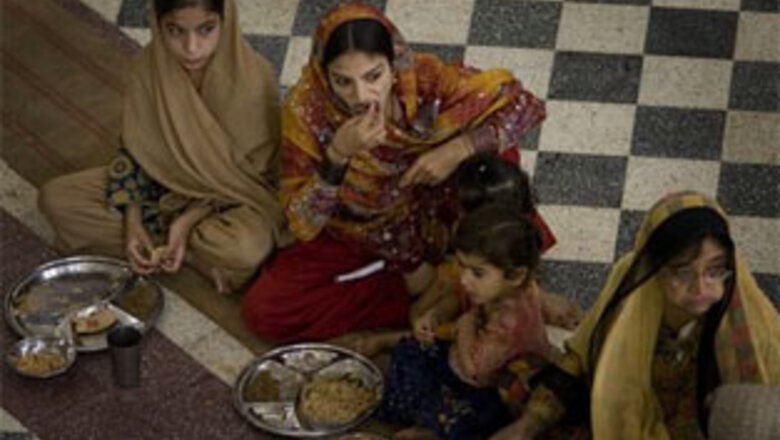
views
Hasanabdal: Members of Pakistan's tiny Sikh community have joined an exodus of hundreds of thousands of people fleeing fighting in a Taliban stronghold and raising fears of a protracted humanitarian crisis.
The army launched an offensive last week as a peace pact with the Taliban in the Swat valley, 130 km northwest of Islamabad, broke down.
At least 3.60,000 people have left their homes in recent days and in all about 5,00,000 are expected to flee.
They join about 6,00,000 people displaced earlier from Swat and other areas because of fighting since August.
The United Nations has warned of a long-term crisis.
Most of the people fleeing from Swat are staying with friends, relatives or in rented accommodation, with only about 20,000 in camps, a UN official said.
Up to 2,500 members of predominantly Muslim Pakistan's small Sikh community have taken refuge at a Sikh shrine in the town of Hasanabdal, 33 km northwest of Islamabad.
Members of the community said the Taliban, who were in almost complete control of Swat for months before last week's offensive, had not persecuted Sikhs.
It was the war that forced them and their Muslim neighbours to flee, they said.
"Our children were so scared of the shelling and bombing," said mother of three Kuldip Kaur, 35, as she stood on a balcony of a pilgrims' hostel at the shrine. "They were screaming 'mother get us out of here'."
Kaur's husband said the family had decided to go after their Muslim neighbours had either fled or were about to leave: "So we followed them."
Brothers
Authorities have vowed to help the displaced and have appealed for international aid.
Prime Minister Yusuf Raza Gilani told the National Assembly the government would soon organise a conference of aid donors to marshal funds.
In the meantime, the United Nations said it was preparing for more people to pour out of the war zone.
The tally of 3,60,000 people who have fled the latest fighting was only of those who had registered with the authorities.
Many were believed not to have bothered to register.
"This is only a percentage of the people who have left," Manuel Bessler, head of the UN Office for the Coordination of Humanitarian Affairs, said of the tally.
"We have to be prepared for a much higher number ... This will not be over next week or in two weeks. We're looking at a protracted displacement crisis," he said.
Arvinder Kumar, a Sikh cloth merchant from Mingora, the main town in the Swat valley, which until a couple of years ago was a tourist destination, said he and other Sikhs had lived "like brothers" with the Taliban.
"They never bothered us ... they did not expel us," said Kumar, who was overseeing the cooking of food in huge vats at the shrine's kitchen. "This is our motherland."




















Comments
0 comment